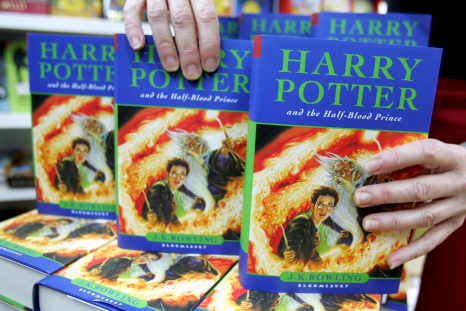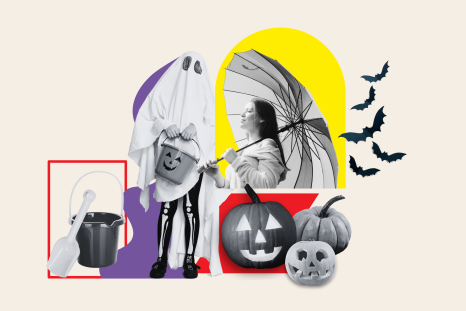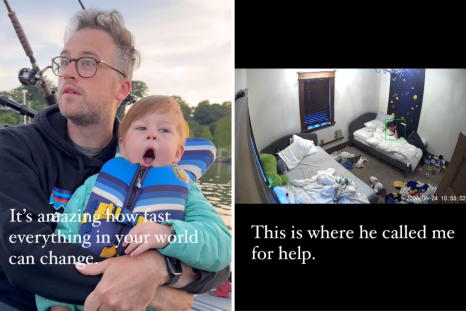Most children take their parents' words as gospel while growing up, but Melissa Guida-Richards had more than a few reasons to question what her parents told her.
The 31-year-old's life went through a seismic shift after she discovered at the age of 19 that she had been adopted from Bogotá, Colombia. Her Italian-Portuguese parents, who are based in the U.S., had always kept Guida-Richards' adoption story hidden from her. For nearly two decades, she lived under the assumption that she was biologically related to her parents, who had chosen to raise her in a "colorblind" environment, in which she was oblivious to her true ethnic heritage.
"Like many adoptees of color, I was raised by a white American family," Guida-Richards, who went on to publish a book about her experience, told Newsweek. "I grew up in the middle-class suburbs of New York and was very sheltered.
More From Newsweek Vault: Don't Wait. These Savings Accounts Still Earn 5% Interest or Higher
"I started noticing differences in my appearance as I got older, but there were enough similarities between us, like black hair and brown eyes, that it seemed plausible to me that I was their biological child," she said.
The revelation came during a seemingly ordinary winter break from college, when Guida-Richards stumbled upon adoption paperwork for her brother that also mentioned her own adoption. She had known since she was 14 that her brother had been adopted, and she had scoured her house then to find evidence that she might have been too, but to no avail. Her discovery came by accident five years later, and she later learned that her mother had struggled with infertility, which prompted the couple to adopt.
"It was a heartbreaking realization because everything I thought I knew was a lie that was kept by literally my entire family," she said. "I was kept from all aspects of my birth culture, and even after my adoption was revealed, my parents refused to acknowledge that I was actually Colombian for years."
More From Newsweek Vault: Online Banks vs. Brick-and-Mortar Banks: How to Choose
While her adoptive parents eventually came to accept and engage with their daughter's Colombian roots, some of Guida-Richards' more distant family members held racist views about Latin Americans, which intensified her emotional turmoil. As she navigated through her pain, Guida-Richards decided to set boundaries with her family members who hold prejudiced views and connect with her Latina heritage.
"Throughout the rest of my undergraduate degree, I tried joining school clubs like Latinos Unidos, but I was stuck feeling like I was not Latina enough because I didn't speak Spanish," she said. "Although I had cultural similarities due to my immigrant parents' background, I still felt like an impostor."
More From Newsweek Vault: Best Place to Put Your Savings: CD vs. High-Yield Savings Account
Building Bridges
It wasn't until she had her two sons that Guida-Richards began to immerse herself in her Colombian culture. With a half-Colombian husband, she found ways to incorporate Colombian food, music and art into their lives. Meeting her birth family, including her birth mother and siblings, a few years ago was a pivotal moment in her journey.
She has also rebuilt her relationship with her parents and now describes her mother as her "biggest supporter." Time apart, eventual forgiveness and mutual understanding paved the way for their renewed bond, with her adoptive family now making efforts to include Colombian holidays and food in their daily life in New York.
Guida-Richards' mother told Newsweek that she feels "proud" of her daughter, despite struggling through painful years earlier when her child made her anger about the concealed adoption known.
"Through our talks, I understood that Melissa wasn't out to hurt me by writing about her experience," she said. "She wanted to educate and help others in the same situation, which is why anyone thinking of adoption should read her writing and consult with her."
Their journey highlights the importance of transparency and cultural inclusion in adoption.
"Love is not enough in adoption. Children need support and resources," Guida-Richards said, warning about emotional issues if the latter is not provided. "When you take a child and place them in a family of another ethnicity, the parents need to incorporate that child's birth culture and hygiene needs, like hair care, and provide racial mirrors of people that look like them."
Guida-Richards has since become an advocate for adoptees and adoptive families, emphasizing the need for more support and cultural sensitivity. Her adoptive mother wrote the foreword to her book, What White Parents Should Know About Transracial Adoption, further cementing their restored relationship. The author gained viral attention on August 9 after she opened up about her story in a post on Instagram's Threads, where she is known as @adoptee_thoughts.
Guida-Richards is one of many adoptees of color who were adopted by a white family. International adoptions peaked in the U.S. between 1994 and 2004, and almost 23,000 children per year were received by American parents.
The National Institutes of Health says that because of increased interest in domestic adoptions within the sending country, and concerns over the treatment of children received by U.S. parents, these numbers dropped in 2019 to 2,971 children adopted from other countries.
The University of Nevada, Reno says that between 2017 and 2019 around 28 percent of all U.S. adoptions were transracial. Ninety percent involved white adoptive parents of children from a different ethnicity.
Although the numbers may have dropped, they are still high, and Guida-Richards worries that each case may not be handled with the diligence and care it deserves. Neither of her adoptive parents had been properly vetted or approved before they went on to adopt her or her brother.
Reflecting on her parents' decision to approach her adoption in a color-blind way, Guida-Richards acknowledges the growth and accountability required to understand and support an adopted child's cultural heritage. In sharing her story, she hopes to inspire other adoptive families to embrace their children's diverse backgrounds and ensure they feel seen, heard and loved in their entirety.
Her experience underscores the need for ongoing education and support within the adoption community, and particularly within the transracial adoption community, to foster a more inclusive and understanding environment for all involved.
"The best way to do that would be by engaging with the child's birth culture before adopting them," she said. "Your first authentic relationship with a person of color should not be the child you adopt into your family.
"Just remember that all parents make mistakes, and it's never too late to get comfortable being uncomfortable so you can do the work to support your children."
If you have a family dilemma, let us know via life@newsweek.com. We can ask experts for advice, and your story could be featured on Newsweek.
Disclaimer: The copyright of this article belongs to the original author. Reposting this article is solely for the purpose of information dissemination and does not constitute any investment advice. If there is any infringement, please contact us immediately. We will make corrections or deletions as necessary. Thank you.



